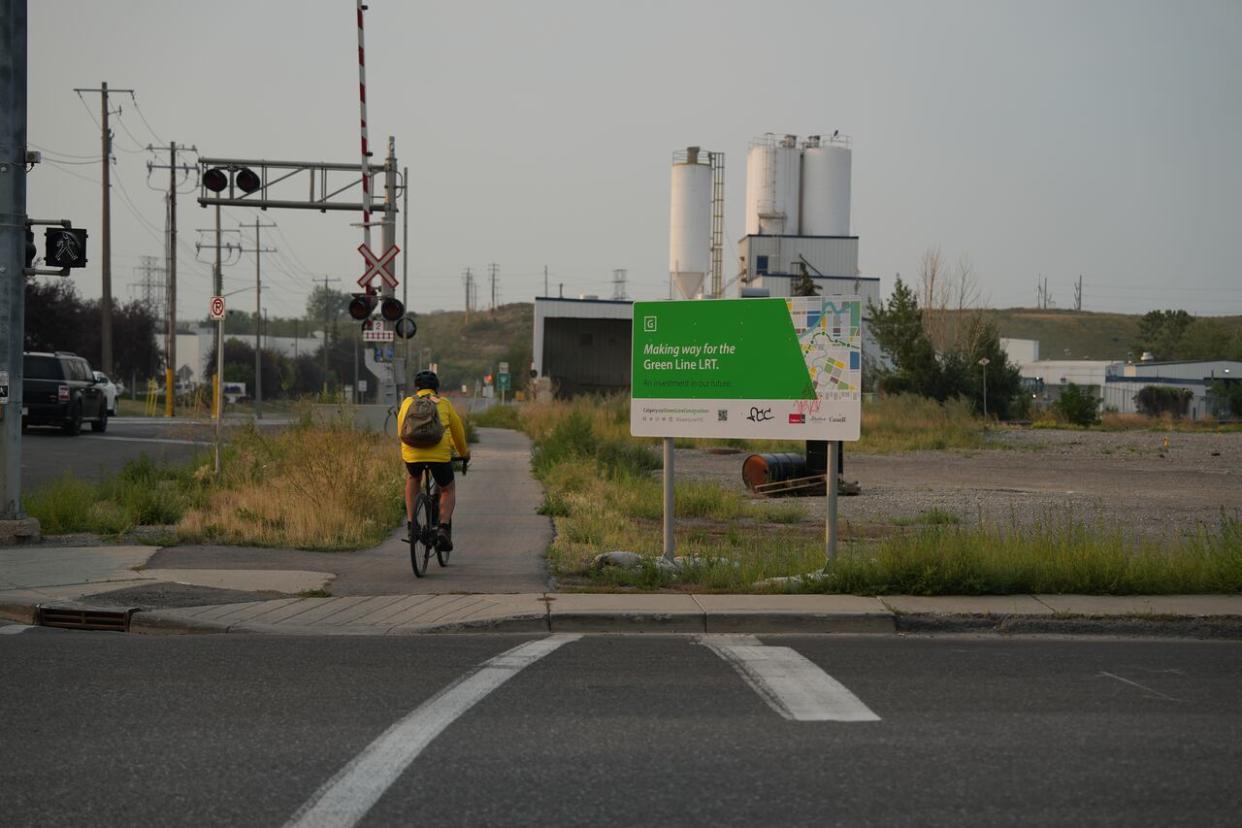
Despite voting to wind down the Green Line LRT project this week, Calgary's city councillors are still divided about the project's viability moving forward. Council passed a motion Tuesday to bring an end to the oft-delayed project, a process which would cost at least $850 million on top of the roughly $1.3 billion that's already been spent.
The motion passed 10-5, with councillors in favour arguing the project was effectively dead when the province said earlier this month that . Councillors who opposed the motion argued the city should keep its options open and try to find middle ground with the provincial government. Ward 10 Coun.

André Chabot said he thinks council's wind-down decision is premature, arguing the province has indicated it's willing to review the project and work with the city. To that point, Alberta Minister of Transportation and Economic Corridors Devin Dreeshen has said the province plans to present an alternative alignment to council before the end of the year, after consulting with an independent engineering firm. The province is seeking a line that connects the southeast to the city core in a less expensive way than the city's plan to tunnel through downtown.
"We should look at completing whatever projects we've got started, don't start anything new, and hopefully none of that will be a throwaway cost," Chabot said, although he expressed doubt that a new Green Line alignment will come at a cheaper cost. "They don't believe that projected ridership justifies the capital expenditure. So if they can push the line further down south and increase ridership, they just need to figure out where those people are going to go and how they're going to be able to connect to other locations and to the downtown.
" Dreeshen told CBC Radio's on Wednesday that . But Chabot said he believes that doesn't mean the province wouldn't be willing to adopt existing infrastructure in a new alignment, which would alleviate that cost. Premier Danielle Smith told reporters Wednesday the province is still willing to work with the city on a new alignment.
She said she was pleased to see council put forward the creation of a committee that includes representatives from the municipal, provincial and federal governments to get the project moving. She said she took that as an encouraging sign the two sides can work together, adding the province is committed to working a on a new proposal. Coun.
Courtney Walcott put forward a motion Tuesday that was approved by council, setting the criteria by which any new Green Line proposal would be approved, to ensure a new alignment builds off of what council's consultations have found Calgarians want. But he's skeptical about whether the province will be able to present a strong alternative. "The province has demonstrated that they do not know what they're doing," the Ward 8 councillor said.
"The idea that they're going to be able to pull this off in four months is so low. So we just wanted to set some baselines for them." Walcott added he voted to wind down the project because while the the city has kept the Green Line moving forward despite setbacks in the past, this time the cost is too great.
"You can't keep leveraging your future on an unforeseen destination, because all the power sits with a funder that doesn't want to play ball and does not act in good faith," Walcott said. Coun. Kourtney Penner noted that council was left with no other feasible decision besides winding down the Green Line, after the province pulled funding.
She added that after the city already worked to find cost savings on the project, the province hadn't demonstrated it was willing to make compromises as well to find a middle ground. "We were trying to find middle ground, and have been trying to find middle ground for months on this project," said Penner, councillor for Ward 11. Councillors on both sides of Tuesday's vote, like Chabot and Penner, said they believe funding already included in the current budget can be used to cover the majority of the wind-down costs without significant changes to Calgarians' property taxes or municipal fees.
But Evan Spencer, councillor for Ward 12, noted the financial impact on Calgarians could still be "devastating." "We could have had a Green Line and the city been in a very precarious financial position, borrowing from future revenue," Spencer said. "We are in a position where that's going to happen anyway potentially, and we don't even have a train to show for it.
" The situation could be worsened, Spencer added, if the provincial or federal government decides it wants to recoup money it's given to the project, leaving the city in a "morass of liabilities and litigation." The result could cause problems for future budgetary cycles and councils, he said. Spencer voted against Tuesday's motion because he wanted council to make a last-ditch effort to work with the province on a different path forward.
The only way forward for the Green Line, he said, is for its funding partners to be aligned. The councillor added he's open to hearing an alternative option from the province, if it suggests something that will benefit Calgarians. But Spencer noted that whatever it proposes will face significant headwind because of the bad blood that's developed over this issue between the province and city.
.







-and-Aiden-Upward-produced-a-65-run-partnership.jpeg?auto=webp&width=1200)






